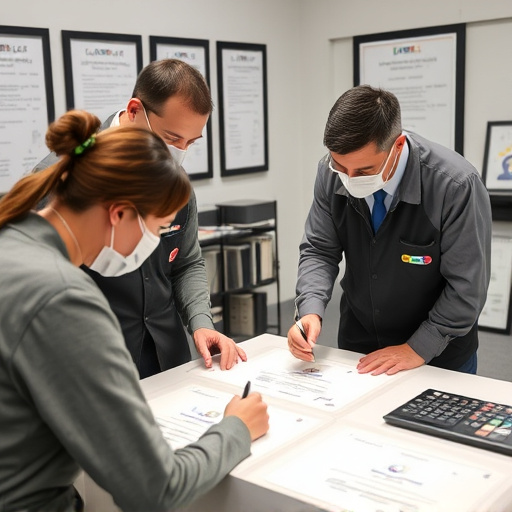Disposable filter intake systems, crucial for machinery performance, are single-use synthetic solutions that prevent particulate damage. With growing environmental concern over paper waste, synthetics offering durability and biodegradability are gaining traction. While paper filters have a shorter lifespan and higher environmental impact, synthetics' longer duration and reduced replacement needs make them cost-effective choices despite higher initial costs. Regular monitoring of filter conditions is vital for maximizing performance and efficiency, emphasizing the importance of timely disposable filter intake systems replacement.
In today’s world, understanding the impact of our choices is crucial. When it comes to automotive maintenance, the decision between paper and synthetic disposable filter intake systems is a significant one. This comprehensive guide explores the shifting landscape of disposable filter intake systems (DFIS) replacement, delving into the benefits and drawbacks of synthetic alternatives. By comparing longevity, environmental considerations, and cost, car owners can make informed choices that not only enhance performance but also contribute to a more sustainable future.
- Understanding Disposable Filter Intake Systems: An Overview
- Exploring Synthetic Alternatives: Benefits and Features
- Comparing Longevity, Environmental Impact, and Cost: Making an Informed Choice for Replacement
Understanding Disposable Filter Intake Systems: An Overview

Disposable filter intake systems, often found in various devices and machinery, are designed for a single use before requiring replacement. These systems play a crucial role in maintaining optimal performance and efficiency, particularly in environments where regular maintenance is challenging or time-sensitive. They act as a barrier, trapping particulate matter, debris, and contaminants that could otherwise cause damage to the equipment’s internal components.
These filters are typically made from synthetic materials known for their effectiveness in capturing fine particles. The disposability aspect offers convenience, ensuring that users don’t have to worry about cleaning or maintaining the filter. It is essential for users to understand when a replacement is necessary, as continued use of a contaminated filter can lead to reduced performance and potential equipment damage. Regular monitoring and timely replacement are key to maximizing the benefits of disposable filter intake systems.
Exploring Synthetic Alternatives: Benefits and Features

In recent years, there’s been a growing interest in exploring synthetic alternatives as a more sustainable and environmentally friendly option compared to traditional paper products, particularly when it comes to disposable filter intake systems. This shift is driven by the need for eco-conscious solutions, as paper waste contributes significantly to global environmental concerns. Synthetic materials offer several benefits that make them appealing for everyday use items like disposable filters.
One of the key advantages is their durability. Unlike paper, synthetic alternatives are less prone to tearing or breaking, ensuring longer lifespan and reduced frequency of replacement. This translates directly into cost savings and fewer waste products, as consumers need not replace disposable filter intake systems as often. Additionally, many synthetics are designed with recycled content, further minimizing environmental impact, and some even boast biodegradable properties, offering a more sustainable cycle for these products.
Comparing Longevity, Environmental Impact, and Cost: Making an Informed Choice for Replacement

When considering the long-term impact and sustainability of disposable filter intake systems, it’s crucial to evaluate their longevity, environmental footprint, and cost. Paper filters, often perceived as more natural and biodegradable, typically offer a shorter lifespan compared to synthetic alternatives. They can degrade within months or years, depending on disposal methods, whereas synthetic filters are designed for extended use, potentially lasting up to several years with proper care.
Environmental impact is another critical factor. While paper filters may seem like a greener option due to their organic composition, the production process involves significant resources and energy. Conversely, synthetic filters often utilize recycled materials and require less energy during manufacturing. When considering the entire lifecycle—production, use, and disposal—synthetic filters generally have a lower environmental impact, especially when disposed of responsibly. Cost-wise, paper filters might seem like a more affordable short-term solution due to their one-time purchase nature. However, the frequent replacement required can lead to higher cumulative expenses over time. Synthetic filters, while potentially more expensive upfront, offer long-term cost savings through reduced replacement frequency.
When considering the replacement of disposable filter intake systems, understanding the advantages of synthetic alternatives is key. By examining longevity, environmental impact, and cost, consumers can make an informed decision that not only benefits their health but also contributes to a more sustainable future. Opting for synthetic filters can reduce waste and minimize ecological footprints, making it a responsible choice for those seeking long-lasting and eco-friendly solutions.














